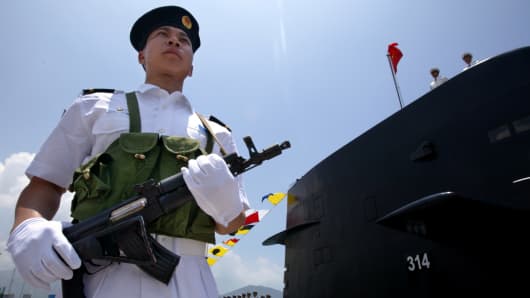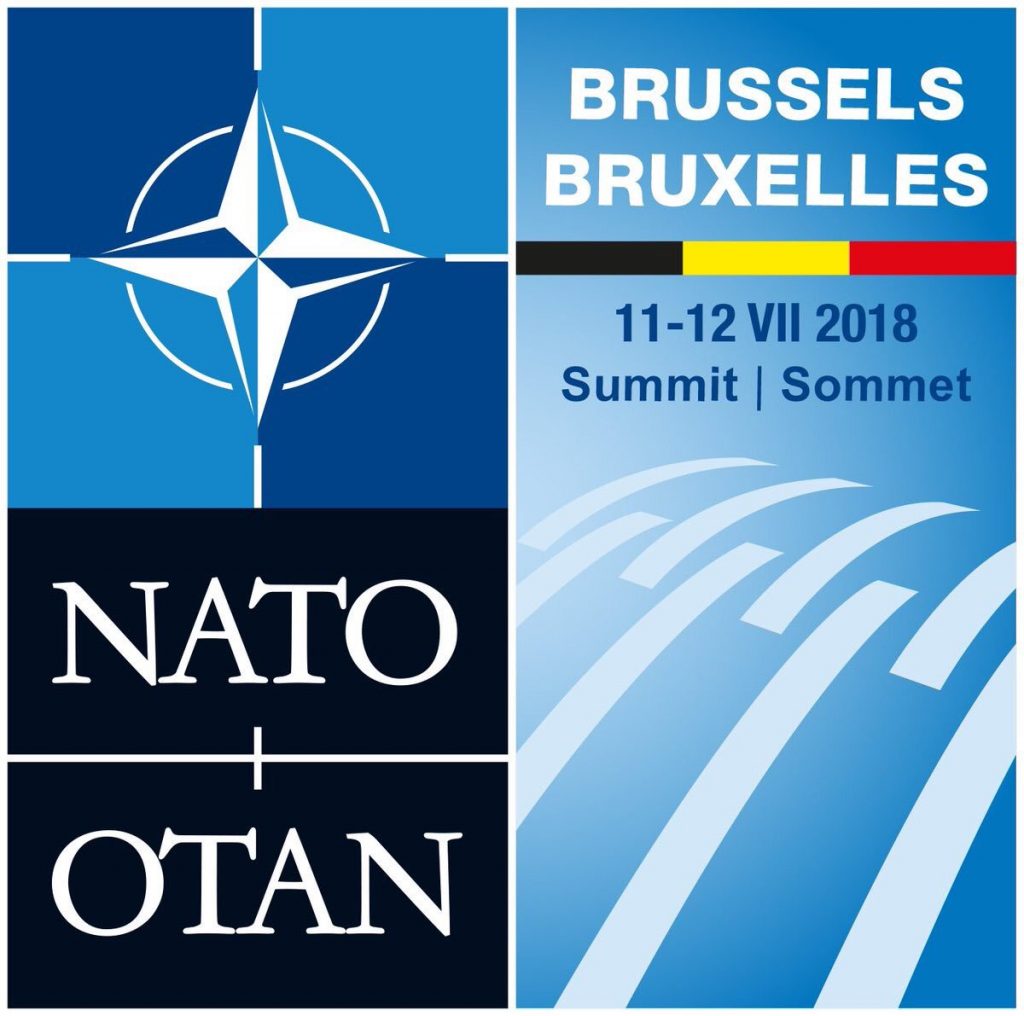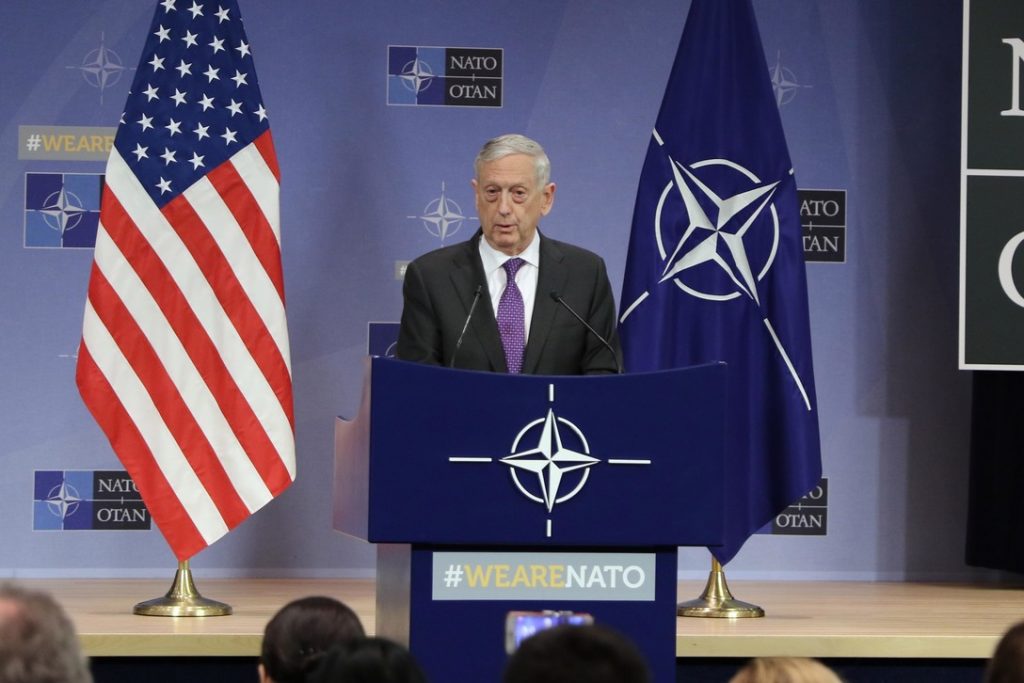By STEPHEN BRYEN
14 July 2018
India’s evolving response to China’s ‘stealth threat’
Is India shifting the goalposts in Indo-Pacific debate?
By SWARAN SINGH
India’s participation in the ongoing Indo-Pacific debate and its decision to join the revived Quadrilateral Security Dialogue (the US, Japan, India and Australia) have raised concerns in the corridors of power in Moscow, Beijing and other capitals. Even Association of South East Asian Nations (Asean) member states view the two back-to-back “Quad” meetings last month in Singapore with concern, as they fear the informal body could eclipse the bloc’s leading role in regional affairs. Then there are several other extra-regional stakeholders who also remain wary of the role of the Quad in this tectonic shift from the continental “Asia-Pacific” to the maritime “Indo-Pacific” geopolitical paradigm.
China Thinks It Can Defeat America in Battle
by David Axe
CHINA’S RISE AND INDIAN OCEAN AMBITIONS
By Aswani Dravid
China's Unlikely Weapon: Tourists
Evan Rees
 China will increasingly play gatekeeper to the country's growing middle-class market for luxury goods, manufactures and food products. This consumer class will only gain more clout in the coming decades. Flows of Chinese tourists will be an unexpected tool of statecraft, raising the potential for sharp disruptions to the travel and aviation sectors. These risks are particularly high in South Korea, Japan and Taiwan, but extend across Southeast Asia and into the islands of the Indian Ocean and the South Pacific.
China will increasingly play gatekeeper to the country's growing middle-class market for luxury goods, manufactures and food products. This consumer class will only gain more clout in the coming decades. Flows of Chinese tourists will be an unexpected tool of statecraft, raising the potential for sharp disruptions to the travel and aviation sectors. These risks are particularly high in South Korea, Japan and Taiwan, but extend across Southeast Asia and into the islands of the Indian Ocean and the South Pacific.Daily Memo: A Conversation on NATO, a Bubble in China, Oil in Russia
The politicking ahead of this week’s NATO summit shows what’s at stake. Two of the three Baltic countries are publicly expressing concern about Russia. Estonia’s foreign minister said that Russia is a threat and that anti-Americanism should be curbed, while its prime minister wrote an op-ed in which he made a case for more NATO troops in Eastern Europe. Lithuania’s defense minister took to the airwaves to emphasize the alliance’s commitment to collective defense. Meanwhile, the head of the Ukraine Permanent Mission to NATO said Ukraine and Georgia would both participate in the NATO summit – much to the chagrin of Hungary, which he admitted may block a post-summit communique. NATO is being pulled in several directions, but there is still a strong faction that sees the organization primarily as an anti-Russian military alliance and is shaping the conversation to reflect as much. Will it be enough?
China is quietly conducting electronic warfare tests in the South China Sea
Amanda Macias
 China is quietly testing electronic warfare assets recently installed at fortified outposts in the South China Sea, according to sources who have seen U.S. intelligence reports. Intelligence assessments, which were curated less than a month ago, say this is the first known use of the equipment since its deployment earlier this year to outposts in the Spratly Islands, said the sources, who spoke on the condition of anonymity. A Pentagon spokesperson declined to comment on intelligence matters.
China is quietly testing electronic warfare assets recently installed at fortified outposts in the South China Sea, according to sources who have seen U.S. intelligence reports. Intelligence assessments, which were curated less than a month ago, say this is the first known use of the equipment since its deployment earlier this year to outposts in the Spratly Islands, said the sources, who spoke on the condition of anonymity. A Pentagon spokesperson declined to comment on intelligence matters.How Much Does OPEC Disagree On Oil Prices?
by Martin Armstrong
After bottoming out at around 40 dollars in June 2017, the price of the Brent barrel has almost doubled since then. The main exporters of crude will be meeting tomorrow in Vienna to discuss their upcoming strategies and price targets, but their starting positions are quite different. Based on analysis by Bloomberg, this infographic reveals that there is a large gap between the barrel prices that each country would find satisfactory for their domestic budgetary needs. Meanwhile, those with more solid extractive industries such as Russia or Kazakhstan would like to increase drilling. Countries where production has been affected by political instabilities such as Libya or Venezuela would prefer to keep export quotas as they are for now.
Can Energy Close America’s Trade Deficit?
Energy has long played a major role in America’s trade deficits. Today, energy is seen differently: as a commodity to be exported, one that can help narrow trade deficits. Yet the hope that energy alone can solve this macroeconomic headache is misplaced. For one, over the last decade the non-energy trade deficit in goods has widened sharply even as the energy trade deficit has disappeared; energy can only do so much without the rest of the economy following. More importantly, the forecasted shifts in the energy trade balance are small compared to what has already happened; if energy has not shrunk the deficit over the last 10 years, it is unlikely to do so in the future. Energy will still matter, of course, but do not expect it to solve this big, non-energy issue.
The Energy and Trade Deficits Delink
July 3, 1863: The Birth of a Nation
By Jacob L. Shapiro
Editor’s note: The following analysis was originally published in 2017. We republish it this year in honor of U.S. Independence Day. To our American readers, we wish you a happy holiday. To our other readers, we hope this piece makes your workday just a little bit better.
The United States declared its independence on July 4, 1776, but that didn’t make it a nation. Sheets of paper, even ones on which well-intended men pledge their “lives, fortunes and sacred honor” to abandon one government for a new government, don’t create nations. Nations cannot be simply declared to exist. They emerge slowly from the shared experiences, good and bad, of generations.
In Search of a Third German Economic Miracle
Germany’s economy is in trouble. According to the Ifo Institute, a top German think tank based in Munich, “storm clouds are gathering over the German economy.” And like a storm, the problems have appeared suddenly. It was only a year ago that Handelsblatt, a German business newspaper based in Dusseldorf, said that 2017 was to be a record year for the German economy and that prospects looked good for the future. It was only six months ago that the International Monetary Fund marked up its forecasts for German economic growth in 2018, and just five months ago that the German government revised its own growth forecasts up to 2.4 percent from 1.9 percent. And it was only four months ago that the EU patted itself on the back for its largest growth rates in a decade, credited largely to Germany’s economic revival.
Germany Imports Gas From Russia. But Is It a ‘Captive’?
By Palko Karasz
 LONDON — President Trump ripped into Germany, a NATO ally, even before this year’s summit meeting started in Brussels on Wednesday, using a longstanding disagreement on commercial and strategic relations with Russia. Departing from diplomatic protocol, Mr. Trump attacked Germany’s relations with Russia over breakfast with NATO’s secretary general, Jens Stoltenberg. “Germany, as far as I’m concerned, is captive to Russia because it’s getting so much of its energy from Russia,” he said. “So we’re supposed to protect Germany but they’re getting their energy from Russia.” In a polite but firm response, Chancellor Angela Merkel said that Germany “can make our own policies and make our own decisions.”
LONDON — President Trump ripped into Germany, a NATO ally, even before this year’s summit meeting started in Brussels on Wednesday, using a longstanding disagreement on commercial and strategic relations with Russia. Departing from diplomatic protocol, Mr. Trump attacked Germany’s relations with Russia over breakfast with NATO’s secretary general, Jens Stoltenberg. “Germany, as far as I’m concerned, is captive to Russia because it’s getting so much of its energy from Russia,” he said. “So we’re supposed to protect Germany but they’re getting their energy from Russia.” In a polite but firm response, Chancellor Angela Merkel said that Germany “can make our own policies and make our own decisions.”How Trump’s Trade War Went From 18 Products to 10,000
By KEITH COLLINS and JASMINE C. LEE
 Jan. 22 The war began when the United States imposed tariffs on solar panels and washing machines. Each circle above represents a product on which a tariff has been placed and is sized according to how much was imported last year. March 8 The United States then put tariffs on steel and aluminum, arguing that unfair trade practices threatened American manufacturers — and thus national security. The European Union, Canada and Mexico were initially exempted. April 2 A focus of the tariffs was China, which has been accused of flooding the world with cheap metal. China retaliated with duties on about $3 billion in American products.
Jan. 22 The war began when the United States imposed tariffs on solar panels and washing machines. Each circle above represents a product on which a tariff has been placed and is sized according to how much was imported last year. March 8 The United States then put tariffs on steel and aluminum, arguing that unfair trade practices threatened American manufacturers — and thus national security. The European Union, Canada and Mexico were initially exempted. April 2 A focus of the tariffs was China, which has been accused of flooding the world with cheap metal. China retaliated with duties on about $3 billion in American products.The NATO Summit Spotlights Its Defense Spending Standard
 The United States will pressure its NATO allies during the military bloc's July 11-12 summit in Brussels to spend more on their own defense. Although it is NATO's most powerful member state, the United States still derives great benefits from the alliance. The commitment from each NATO member to spend at least 2 percent of gross domestic product on defense does not adequately account for the different security priorities of the alliance's disparate states. Fed up with what it perceives as an unequal burden sharing, the United States is preparing to put considerable pressure on its NATO allies during a summit in Brussels on July 11 and 12. U.S. President Donald Trump already has foreshadowed this pressure, which could include threats to withdraw U.S. forces from Europe or to cancel major NATO exercises, by sending strongly worded letters to the leaders of several NATO allies, including Germany, Belgium, Norway and Canada. While the United States has a case to make that the alliance's member states are not living up to their commitment to spend at least 2 percent of their gross domestic product on their own defense, NATO remains a critical component of the United States' global dominance.
The United States will pressure its NATO allies during the military bloc's July 11-12 summit in Brussels to spend more on their own defense. Although it is NATO's most powerful member state, the United States still derives great benefits from the alliance. The commitment from each NATO member to spend at least 2 percent of gross domestic product on defense does not adequately account for the different security priorities of the alliance's disparate states. Fed up with what it perceives as an unequal burden sharing, the United States is preparing to put considerable pressure on its NATO allies during a summit in Brussels on July 11 and 12. U.S. President Donald Trump already has foreshadowed this pressure, which could include threats to withdraw U.S. forces from Europe or to cancel major NATO exercises, by sending strongly worded letters to the leaders of several NATO allies, including Germany, Belgium, Norway and Canada. While the United States has a case to make that the alliance's member states are not living up to their commitment to spend at least 2 percent of their gross domestic product on their own defense, NATO remains a critical component of the United States' global dominance.Trump, Putin and a Contentious State of Affairs on the Continent
By Reva Goujon
 U.S. President Donald Trump's return to the NATO summit will bring with it a repeat of a set of familiar negotiating tactics, which are more likely to deepen the chasm between the White House and some security allies. While U.S. relations with the Western European powers will remain strained, Eastern European allies will try to deepen their energy and security ties with Washington in hopes of muddying a potential U.S.-Russia rapprochement. While negotiations with Moscow on a host of issues could serve a strategic purpose, that strategy would be greatly undermined if the White House inadvertently plays to the Kremlin on dividing the West.
U.S. President Donald Trump's return to the NATO summit will bring with it a repeat of a set of familiar negotiating tactics, which are more likely to deepen the chasm between the White House and some security allies. While U.S. relations with the Western European powers will remain strained, Eastern European allies will try to deepen their energy and security ties with Washington in hopes of muddying a potential U.S.-Russia rapprochement. While negotiations with Moscow on a host of issues could serve a strategic purpose, that strategy would be greatly undermined if the White House inadvertently plays to the Kremlin on dividing the West.NATO Must Revamp Wartime Command Structure
By LUCJA SWIATKOWSKI CANNON
 Our Paul McLeary is traveling with Defense Secretary Jim Mattis to the NATO Summit in Brussels this week so we’ll be providing in-depth alliance coverage leading up to RIAT and Farnborough and during President Trump’s European visit. Tomorrow, we’re publishing another NATO piece by Michael Matlaga of CSIS. In keeping with all that, we offer this intriguing call for changes to NATO’s command and control system. Sen. John McCain identified this as a key effort for the summit in a statement Tuesday. He also reminded us of what really matters in the current atmosphere: “I hope that during the upcoming summit we will continue to see progress on command structure reforms, new initiatives aimed at countering terrorism and enhancing readiness, and renewed support for the Open Door policy through accession talks with Macedonia. These developments will send a stronger message of NATO’s commitment to collective defense than any tweet.” Read on to relish author Lucja Swiatkowski Cannon’s arguments on NATO C2. The Editor.
Our Paul McLeary is traveling with Defense Secretary Jim Mattis to the NATO Summit in Brussels this week so we’ll be providing in-depth alliance coverage leading up to RIAT and Farnborough and during President Trump’s European visit. Tomorrow, we’re publishing another NATO piece by Michael Matlaga of CSIS. In keeping with all that, we offer this intriguing call for changes to NATO’s command and control system. Sen. John McCain identified this as a key effort for the summit in a statement Tuesday. He also reminded us of what really matters in the current atmosphere: “I hope that during the upcoming summit we will continue to see progress on command structure reforms, new initiatives aimed at countering terrorism and enhancing readiness, and renewed support for the Open Door policy through accession talks with Macedonia. These developments will send a stronger message of NATO’s commitment to collective defense than any tweet.” Read on to relish author Lucja Swiatkowski Cannon’s arguments on NATO C2. The Editor.A Strategic Reset for NATO
by Zalmay Khalilzad
Thailand cave rescue: how did the boys get out?
Seán Clarke, Paul Torpey, Paul Scruton, Michael Safi, Daniel Levitt, Pablo Gutiérrez and Chris Watson
All of the 12 Thai boys who became stranded inside a flooded cave network have been rescued, along with their coach. The perilous operation to extract them took place as rainy weather moved in The Moo Pa (Wild Boars) academy team, whose ages range from 11 to 16, became trapped with their 25-year-old coach, Ekaphol Chantawong, inside the six-mile Tham Luang cave in the Doi Nang Non mountain range on 23 June.
NATO Has A Good Story To Tell, But Is Its Audience Of One Listening?
 BRUSSELS: Despite the headlines predicting disaster in Brussels, there is some good news for NATO allies to promote during their annual summit that kicks off here on Wednesday. But how much of that story will filter out of the gleaming new NATO headquarters after President Donald Trump airs his grievances over the alliance’s defense spending? That’s the question that officials are grappling with in the final hours before the summit kicks off.
BRUSSELS: Despite the headlines predicting disaster in Brussels, there is some good news for NATO allies to promote during their annual summit that kicks off here on Wednesday. But how much of that story will filter out of the gleaming new NATO headquarters after President Donald Trump airs his grievances over the alliance’s defense spending? That’s the question that officials are grappling with in the final hours before the summit kicks off.AI, automation, and the future of work: Ten things to solve for
By James Manyika and Kevin Sneader
As machines increasingly complement human labor in the workplace, we will all need to adjust to reap the benefits. Automation and artificial intelligence (AI) are transforming businesses and will contribute to economic growth via contributions to productivity. They will also help address “moonshot” societal challenges in areas from health to climate change. At the same time, these technologies will transform the nature of work and the workplace itself. Machines will be able to carry out more of the tasks done by humans, complement the work that humans do, and even perform some tasks that go beyond what humans can do. As a result, some occupations will decline, others will grow, and many more will change.
Blockchain beyond the hype: What is the strategic business value?
By Brant Carson, Giulio Romanelli, Patricia Walsh, and Askhat Zhumaev
Speculation on the value of blockchain is rife, with Bitcoin—the first and most infamous application of blockchain—grabbing headlines for its rocketing price and volatility. That the focus of blockchain is wrapped up with Bitcoin is not surprising given that its market value surged from less than $20 billion to more than $200 billion over the course of 2017.1Yet Bitcoin is only the first application of blockchain technology that has captured the attention of government and industry.
National Security Concerns Over Hackers Commandeering Satellites
By Candice Lanier
 The number of satellites transmitting GPS locations, cellphone signals and other sensitive information has been rapidly increasing, which has resulted in the creation of favorable circumstances for hackers. Even with all the advances in satellite technology, much of the US military’s satellite technology remains vulnerable. Earlier in the month, Bleeping Computer reported on a cyber-espionage group believed to be operating out of China who hacked companies who develop satellite communications and geospatial imaging. They also targeted defense contractors from the US and Southeast Asia:
The number of satellites transmitting GPS locations, cellphone signals and other sensitive information has been rapidly increasing, which has resulted in the creation of favorable circumstances for hackers. Even with all the advances in satellite technology, much of the US military’s satellite technology remains vulnerable. Earlier in the month, Bleeping Computer reported on a cyber-espionage group believed to be operating out of China who hacked companies who develop satellite communications and geospatial imaging. They also targeted defense contractors from the US and Southeast Asia:Tomorrow’s Quantum Computers Are Already Threatening Today’s Data
BY JOHN BREEDEN II
 It may seem like the plot of a new Terminator movie, but quantum computers from the future are threatening government data today. But before you accuse me of wearing my tinfoil hat a little too tightly, consider the fact that the future we are talking about may not be that far off. IBM perfected a 50-qbit quantum computer last year and recently opened up its older 20-qbit model for anyone to play with on the web. They estimate that large-scale quantum computers are a mere five years, or less, away.
It may seem like the plot of a new Terminator movie, but quantum computers from the future are threatening government data today. But before you accuse me of wearing my tinfoil hat a little too tightly, consider the fact that the future we are talking about may not be that far off. IBM perfected a 50-qbit quantum computer last year and recently opened up its older 20-qbit model for anyone to play with on the web. They estimate that large-scale quantum computers are a mere five years, or less, away.Summary: The Department of Homeland Security’s Cybersecurity Strategy
By Hayley Evans
With an anticipated 20 billion devices connected to the internet by 2020, cybersecurity has become a core component of homeland security. Complicating the threat picture, nation-states have begun to use proxies, and malicious actors with apparent criminal and nation-state affiliations now engage in online criminal activity. In 2015, an intrusion into a federal agency resulted in the compromise of over 4 million federal employees’ personnel records, affecting nearly 22 million people. The proliferation of internet-of-things devices increases the chances that cyberactivity and ransomware incidents—such as WannaCry and NotPetya—will have serious kinetic consequences.
HARNESSING TECH INNOVATION FROM BLOCKCHAIN TO KILL CHAIN
By Jimmy Drennan
Subscribe to:
Comments (Atom)
